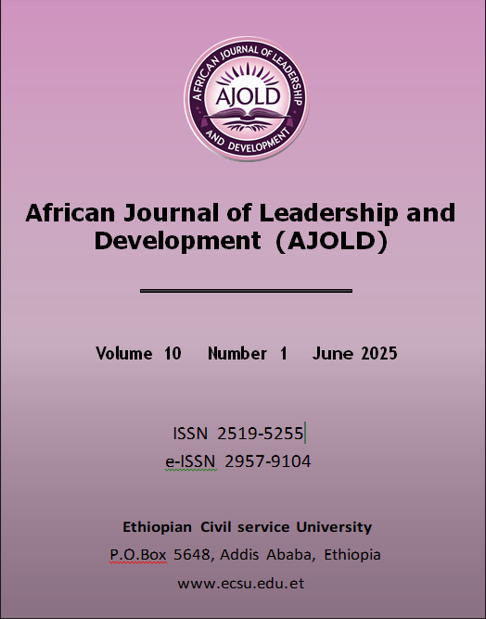Exploring Rural Women Empowerment: Practices and Challenges in Northern Shoa Zone, Amhara Regional State, Ethiopia
DOI:
https://doi.org/10.63990/2025ajoldvol10iss1pp50-77Keywords:
Challenges, empowerment, opportunities, practices, womenAbstract
Empowering women involves uplifting those who have historically been marginalized in terms of economic, social, and political standings. The study comprehensively examined the current status of women's empowerment, the obstacles hindering progress, as well as the potential avenues for advancement. This study employed concurrent mixed method approach. Primary data were gathered from focus group discussions and interviews with key informants. Additionally, insights were gathered from 384 randomly selected women through scheduled interviews. Qualitative data were analyzed using a narrative approach while descriptive statistics was used to analyze the quantitative data using SPSS software. The finding revealed 69.8% of households were found male- headed while the remaining 30.2% of them were female-headed. In addition, 59.4% of them did not have knowledge regarding the constitutionally declared women’s right and 34.1% of them their land certification is registered under their husband’s name. Although the district’s women and children affairs is expected to play the lion’s share of roles in the women empowerment process, it was found that it has failed to get incredible rating from the respondents. Likewise, 67.5% of the respondents rated the district administration’s overall effort and commitment made towards socio-economic empowerment of women as low. Presence of indigenous cooperative societies and existence of different organizations working on gender and reproductive health issues were found that as an opportunity to enhance women empowerment. However, men- dominant culture, poverty, inadequate women’s confidence, inadequate facilities, sexual abuse, inadequate women political participation continue to restrict women's control over resources, decision-making regarding finances and property management. Furthermore, prevailing perceptions systematically put women in subordinated positions in the society, curtailing their economic autonomy and weakening their bargaining position within the family. Their weakened bargaining position translated into little or no voice in household decision requires concerted awareness-raising efforts within the community.
Downloads
Published
How to Cite
Issue
Section
License
This work is licensed under a Creative Commons Attribution-NonCommercial 4.0 International License






